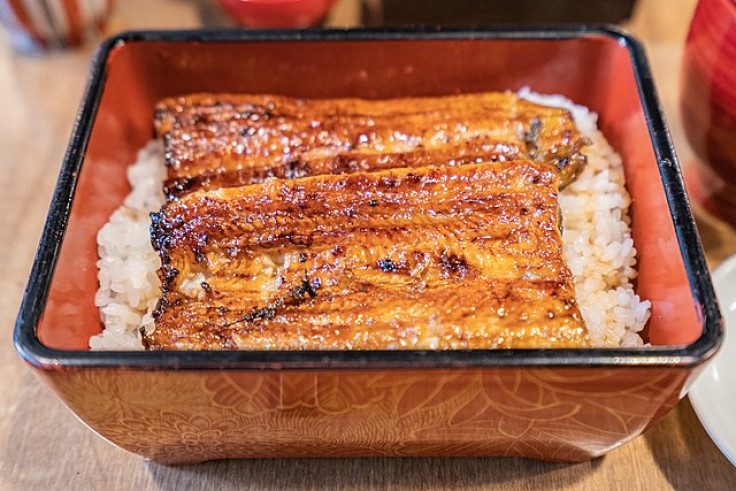Israeli Company Produces First Lab-Grown Eel Meat
Lab-grown eel meat is anticipated to boast a markedly reduced environmental footprint compared to meat sourced from livestock.

Scientists have successfully produced the world's first lab-grown eel meat in a groundbreaking development for sustainable protein production.
The extensive depletion of eel populations due to overfishing has led to soaring prices, but cultured eel presents a guilt-free alternative for enthusiasts of this delicacy.
This achievement marks a significant leap forward in the quest for alternative and environmentally friendly food sources, particularly within the seafood industry.
Lab-grown meat is anticipated to boast a markedly reduced environmental footprint compared to meat sourced from livestock.
Scientists have emphasised that avoiding traditional meat and dairy products is one of the best ways to reduce your carbon footprint and environmental impact.
Forsea Foods in Israel successfully created eel meat using embryonic cells from a freshwater eel. Collaborating with a Japanese chef, the company fashioned unagi kabayaki – marinated grilled eel over rice – and unagi nigiri, a variety of sushi.
With aspirations to expand its operations, Forsea Foods aims to introduce the lab-grown eel to the market in approximately two years.
Prime Minister Fumio Kishida of Japan threw his support behind the cultivation of the meat industry last year.
In Japan, the restaurant price is around $250 per kilogram, and Forsea Foods anticipates that the cultured eel will align with that of its wild-caught counterpart.
Eel populations have faced significant challenges in recent years due to habitat loss, climate change, and commercial fishing pressures.
The innovative approach of lab-grown eel meat provides a promising solution to these challenges by offering a more sustainable and controlled production method.
The cultivation process involves isolating eel cells and providing them with a nutrient-rich environment in a controlled lab setting.
Over time, these cells multiply and form muscle tissue, replicating the texture and taste of conventionally harvested eel.
The resulting product is not only environmentally conscious but also free from the contaminants often associated with wild-caught seafood.
The announcement of lab-grown eel meat comes at a crucial juncture when the global demand for seafood is increasing, and concerns about the environmental impact of traditional fishing practices are growing.
The potential for scalable and efficient production of cultivated seafood presents an exciting opportunity to meet this demand while mitigating the ecological footprint associated with conventional fishing.
Consumption of eel in Japan has fallen by 80 per cent since 2000.
Roee Nir, chief executive of Forsea Foods said: "This is a high-priced fish and there is no one to supply it."
"It has a very unique flavour and texture – it's very tender and fatty but also has a unique umami flavour and we're working to capture this," said Nir. The current prototype will undergo further improvements before going on sale.
Chef Katsumi Kusumoto, who runs the vegan restaurant Saido in Tokyo, added. "Unagi is an enduring favourite in Japan. But its timeless appeal is impacted by a growing awareness of the need to take a more sustainable approach."
The cultivation of eel meat in a controlled environment also offers advantages in terms of food safety. Lab-grown seafood eliminates the risk of contamination and pollutants often found in wild-caught fish, providing consumers with a safer and more reliable food source.
While lab-grown meat has been developed for various land-based animals, the successful production of eel meat underscores the potential for expanding these technologies to marine species.
Researchers are optimistic about the possibility of applying similar techniques to other seafood varieties, opening the door to a new era of sustainable aquaculture.
As the lab-grown eel meat heads towards commercialization, it is expected to spark conversations about the future of the seafood industry and the role of technology in ensuring its sustainability.
The scientific breakthrough is also one for ethical, environmentally friendly, and cruelty-free alternatives to play a significant role in meeting the world's growing demand for protein.
© Copyright IBTimes 2024. All rights reserved.






